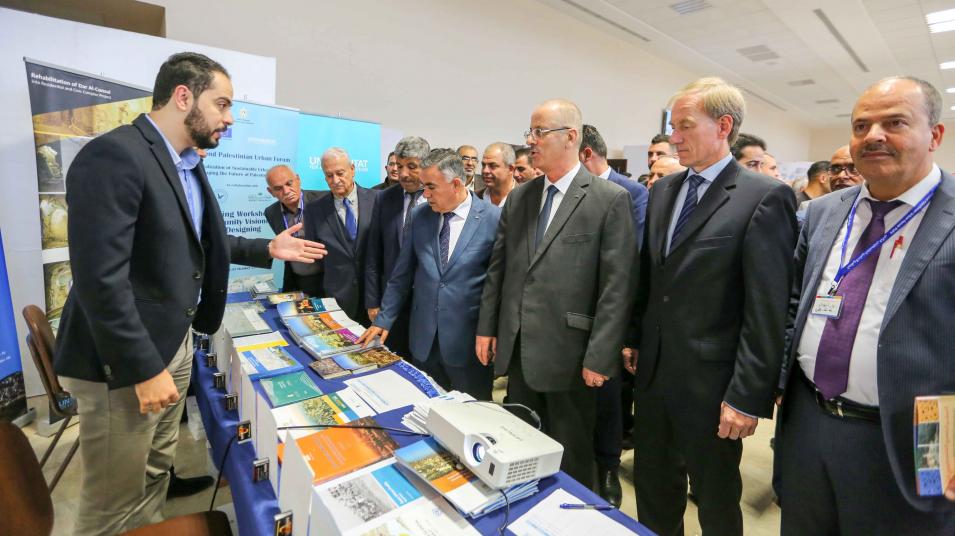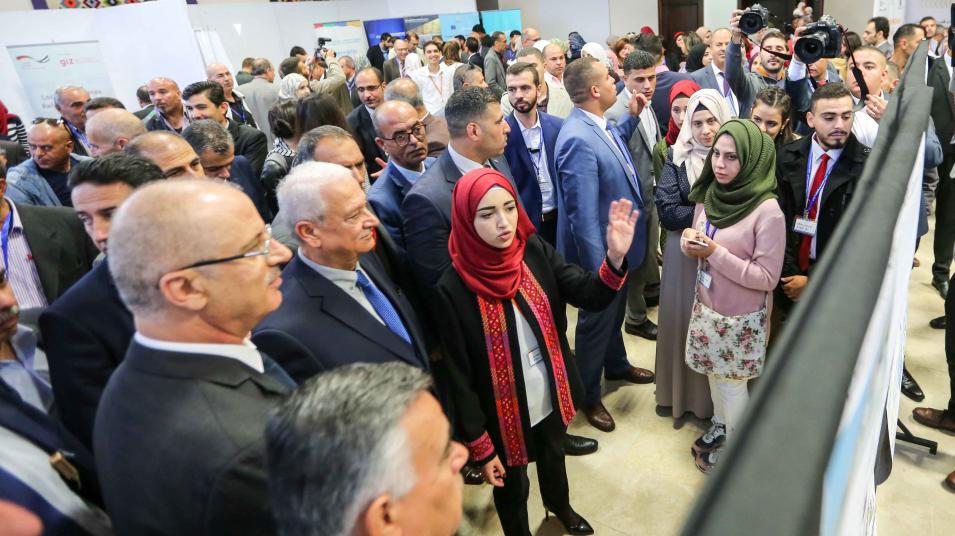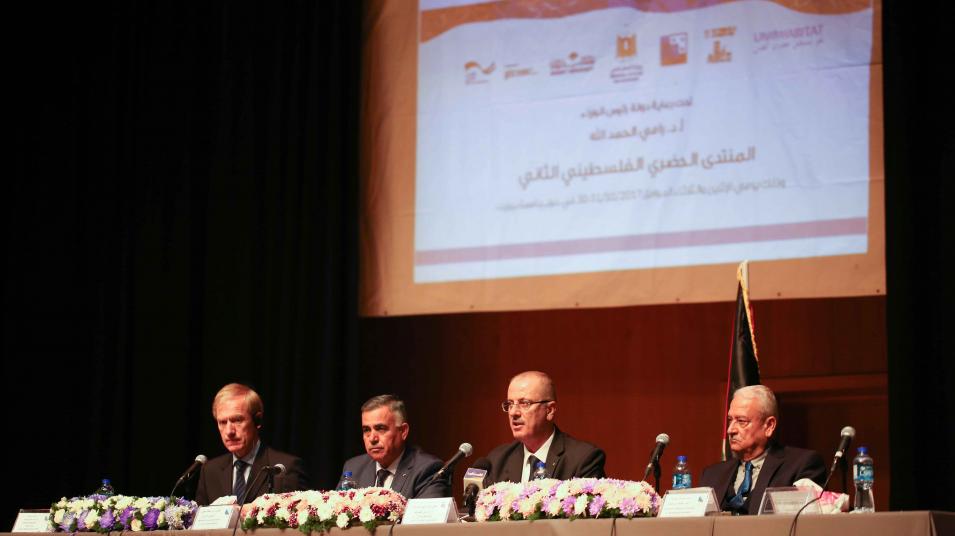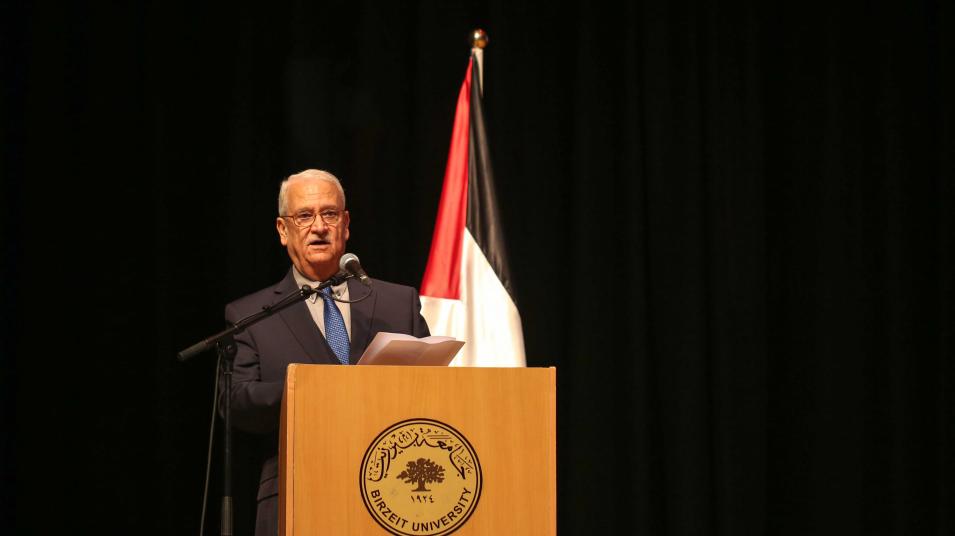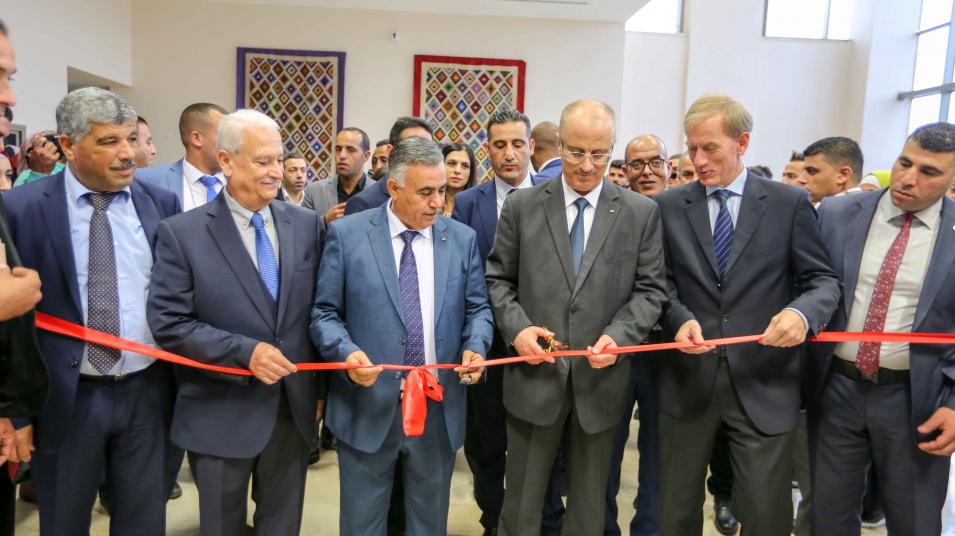BZU hosts “Second Urban Forum” on the future of Palestinian cities
Birzeit University, in partnership with the Palestinian Ministry of Local Government, UN-Habitat, and the German Corporation for International Cooperation (GIZ), held the Second Palestinian Urban Forum on October 30 and 31.
The forum, “Localizing the New Urban Agenda: Shaping the Future of Palestinian Cities,” presented specialized papers and dialogue sessions to discuss themes in urban design such as integrated urban planning; the urban economy; inclusive and cohesive cities; and innovation and future cities.
The President of Birzeit University, Dr. Abedellatif Abu Hijleh, highlighted the University’s mission in supporting the civil and governmental institutions in Palestine. Abu Hijleh marked the forum as a step to rein in urban growth in Palestinian cities. He said, “Urban planning is an important aspect of future development planning everywhere in the world; it aims to solve urban issues and raise the quality of life for everyone.”
Dr. Abu Hijleh also remarked on the delicate Palestinian situation with regard to urban development. “In Palestine, urban planning requires more effort, because of the constant harassment and land-grabs by the Israeli military occupation. The at-times turbulent situation, however, makes urban planning even more beneficial and worthwhile; it gives us a way to react to future needs and challenges today.”
The Prime Minister of Palestine, Dr. Rami Hamdallah, noted the urban development issues that Palestine faces today, “There are many obstacles in our way, chief among them are the arbitrary Israeli restrictions and constant harassment; population congestion; and environmental challenges.”
“Even with these challenges,” Dr. Hamdallah added, “the Palestinian government has been able to raise the quality of life for Palestinians.”
Dr. Hamdallah also applauded the inter-institutional cooperation that has played a significant role in executing the national agenda in urban development. He said, “We are committed to the sustainable development model in Palestine, and our national agenda revolves around the Palestinian citizen in every facet of life. I commend the civil, non-governmental, and governmental institutions on their work and collaboration in implementing a sustainable urban development and planning model that plays to the strengths of the national agenda.”
The Minister of Local Government, Dr. Hussein Al-A’raj, emphasized the importance of urban planning to the modern state and highlighted the Palestinian government’s constant work to achieve the best possible standard of life for the Palestinian people. He added, “We will continue to abide by the UN standards of development, and recently, we have been focusing on harnessing and honing the abilities of our people, as well as improving their communication skills. This is part of our commitment to Palestine and its cities and citizens.”
The UN-Habitat Representative in Gaza, Ziyad Al-Shaqra, who was not granted a license to travel to the West Bank by the Israeli Occupation, observed, in his speech delivered over the phone, that the Urban Forum goes hand-in-hand with the urban planning strategy in Palestine. He said, “Within the next 20 years, two-thirds of the world’s population are going to be living in cities. We have taken that into consideration, and we are formulating urban planning strategies that will create a better future for Palestine - a future in which parallel plans and efforts in each city are made to establish a Palestine that is ready to tackle the urban and environmental challenges of the future.”
The Head of the German Representative in Ramallah, Peter Beerwerth, praised the relationship between the German and the Palestinian governments. He said, “Urban development figured prominently within the German-Palestinian cooperation framework.”
Beerwerth also commended the perseverance that the Palestinian people show: “I have always been impressed with Palestinian resilience, and this forum shows just that.”

